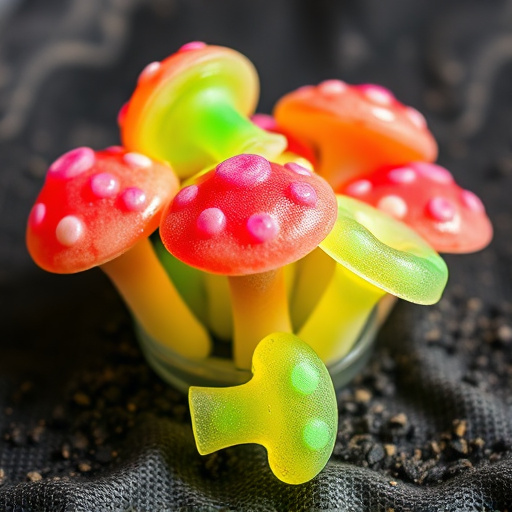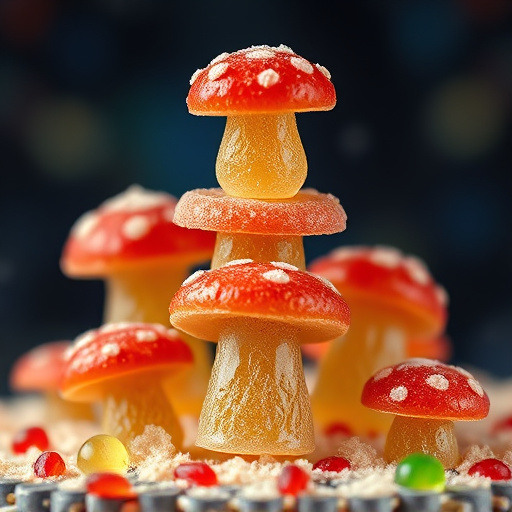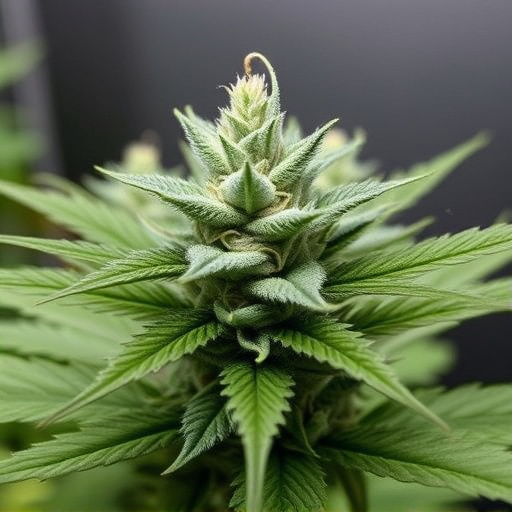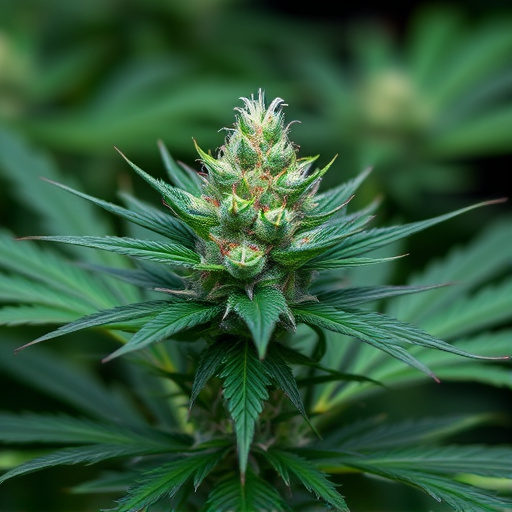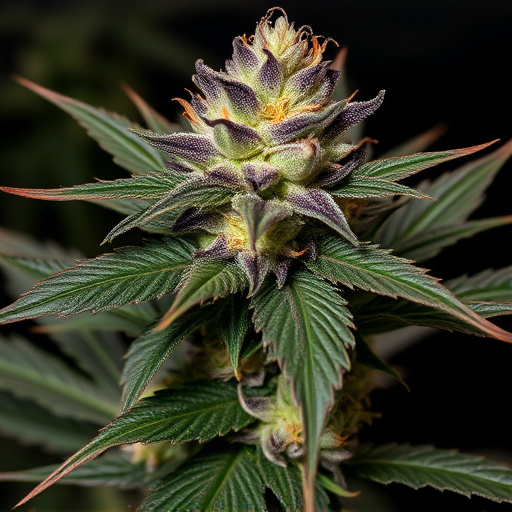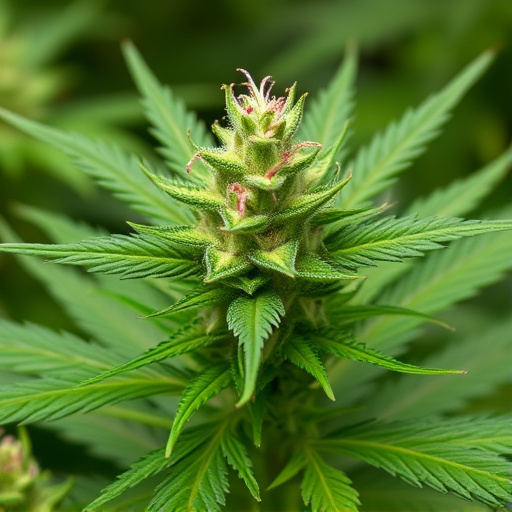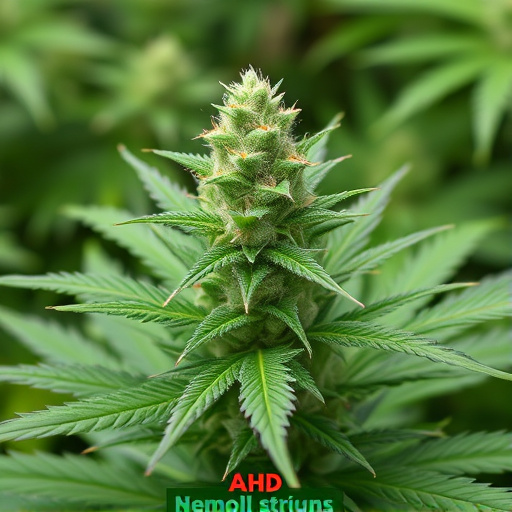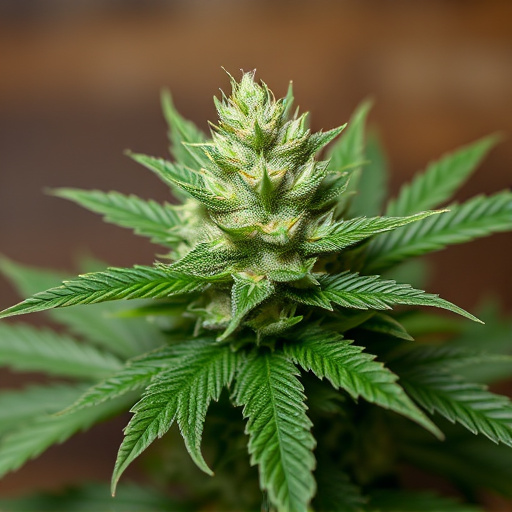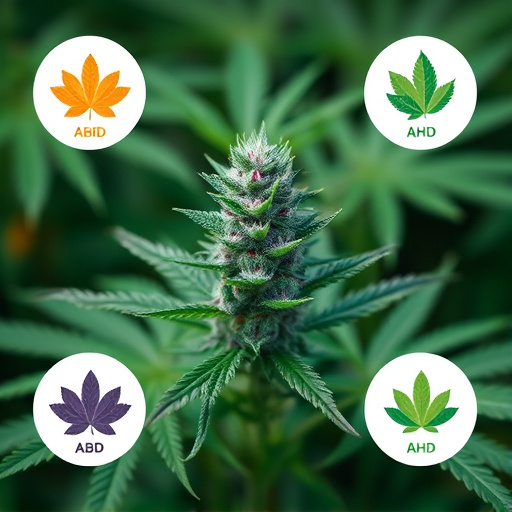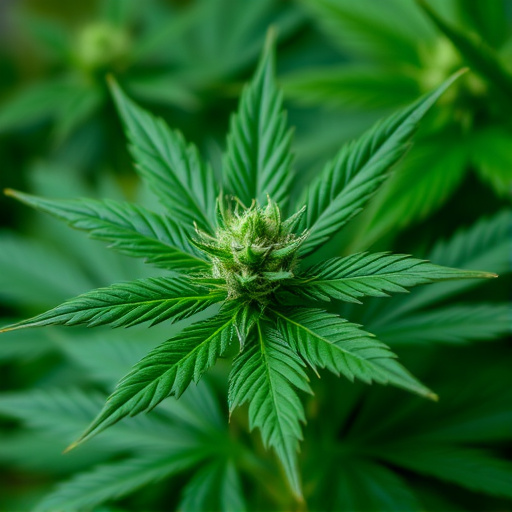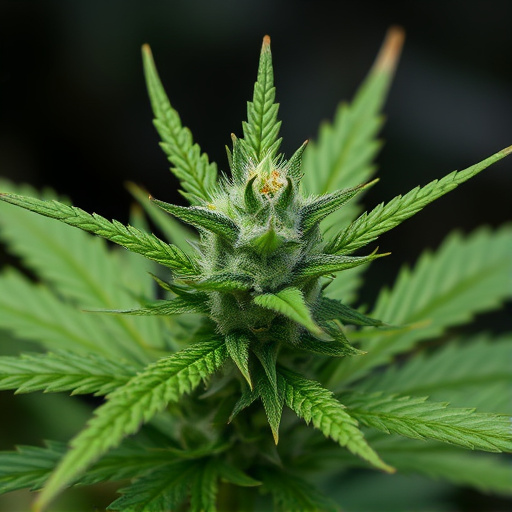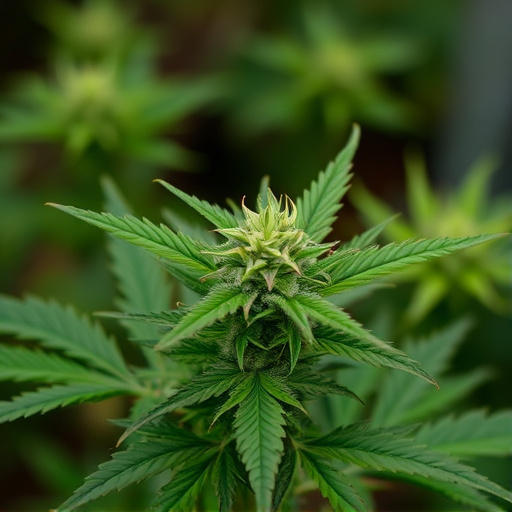High-THC cannabis strains are gaining attention as a potential alternative treatment for ADHD symptoms, offering relaxation and improved focus. However, THC effects vary widely among users, and potential side effects like increased stress or paranoia necessitate professional guidance before considering them for medical use, especially for ADHD. Consulting healthcare professionals is crucial to safely explore cannabis strains high in THC as an adjunctive therapy, tailoring it to individual needs and tolerance.
High-THC strains of cannabis have gained significant attention, especially among those seeking relief for various conditions. This article delves into the multifaceted effects of these potent strains on both the body and mind, focusing on their potential benefits and complexities. We explore how high THC levels interact with our physiological systems, particularly in managing symptoms associated with ADHD, going beyond the well-known relaxation effects. By understanding these impacts, individuals can make informed decisions about incorporating cannabis strains for ADHD treatment.
- Understanding High-THC Strains: The Basics
- Effects on the Body: Beyond Relaxation
- Mental Impact and ADHD Management: A Complex Relationship
Understanding High-THC Strains: The Basics

Cannabis strains with high concentrations of tetrahydrocannabinol (THC) have gained significant attention, especially in recent years when it comes to addressing various health conditions. These high-THC strains offer a unique approach to managing symptoms associated with certain disorders like ADHD (Attention Deficit Hyperactivity Disorder). Typically, cannabis strains are categorized based on their THC levels, with low-THC varieties usually containing less than 10% THC and high-THC strains exceeding 20%.
For individuals seeking alternative treatments for ADHD, high-THC strains could be a consideration. Some research suggests that THC may help reduce hyperactivity and improve focus in certain individuals. However, it’s essential to understand that cannabis affects everyone differently, and what works for one person with ADHD might not have the same effect on another. As such, exploring this option should be done under professional guidance, taking into account individual needs and potential side effects.
Effects on the Body: Beyond Relaxation
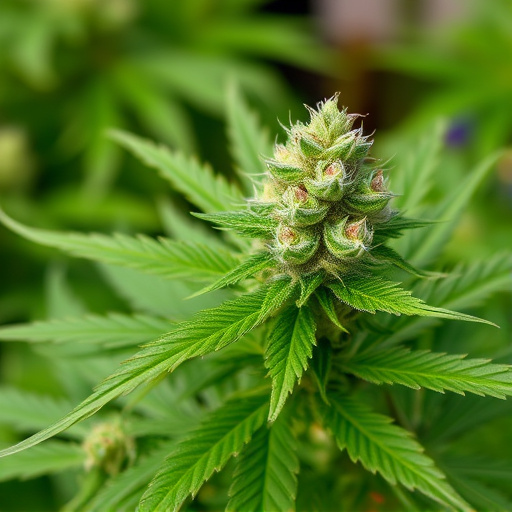
High-THC (tetrahydrocannabinol) strains of cannabis have long been associated with relaxation and a calming effect on both mind and body. However, their impact extends far beyond inducing a state of tranquility. When consumed, these strains can influence various physiological processes in the body. For instance, THC has been shown to interact with the endocannabinoid system, which plays a significant role in regulating pain perception, appetite, mood, and memory. This interaction can lead to reduced inflammation, making it potentially beneficial for individuals with chronic pain or conditions like multiple sclerosis.
Moreover, cannabis strains high in THC may offer certain advantages for managing symptoms associated with ADHD (Attention-Deficit/Hyperactivity Disorder). Research suggests that THC’s ability to enhance cognitive functions and improve focus could help some individuals with ADHD. It may also alleviate restlessness and impulsivity by modulating the brain’s activity in ways similar to commonly prescribed medications. However, it’s essential to approach this topic with caution and consult healthcare professionals for personalized advice, especially considering the potential risks and side effects of high-THC consumption.
Mental Impact and ADHD Management: A Complex Relationship
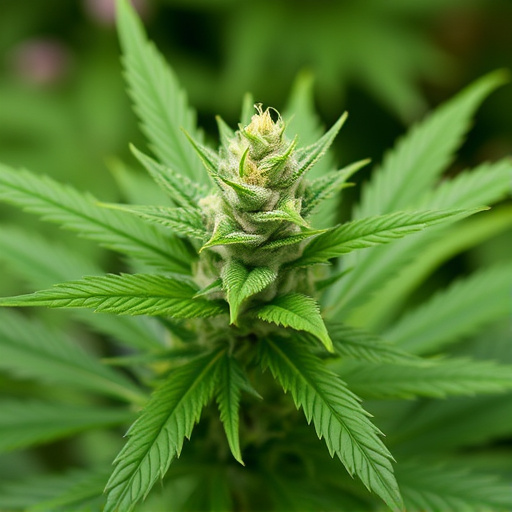
Cannabis strains high in THC have a complex relationship with mental health, particularly when it comes to ADHD management. While THC is known for its psychoactive effects, which can induce relaxation and reduce anxiety for some individuals, it may also trigger increased stress, paranoia, or disorientation in others, especially at higher doses. For folks living with ADHD, the impact of high-THC strains can be mixed. Some report that cannabis helps manage symptoms like impulsivity, restlessness, and focus issues by providing a calming effect or enhancing cognitive function.
However, the unpredictable nature of THC’s influence on mental states means it may not always have a positive effect. For individuals with ADHD who struggle with executive functions, decision-making, or emotional regulation, high-THC strains could potentially worsen these challenges. It’s essential to approach cannabis as a potential tool for ADHD management with caution and consideration of individual tolerance and response. Consulting healthcare professionals is crucial before integrating any new substance into an ADHD treatment plan.
High-THC strains, while offering potential relief for various conditions, particularly in managing ADHD symptoms, come with complex effects on both the body and mind. As we’ve explored, these strains can induce profound relaxation and enhance creativity, but they may also lead to increased anxiety or cognitive impairment. For individuals considering cannabis as an ADHD treatment, it’s crucial to understand that different strains have distinct profiles, and what works for one person might not work for another. Further research is needed to fully unravel the intricate relationship between THC, the endocannabinoid system, and mental health conditions like ADHD. In the meantime, seeking guidance from healthcare professionals and exploring various cannabis strains can help individuals find a balanced approach to managing their symptoms in a safe and effective manner.
